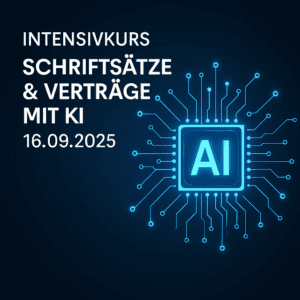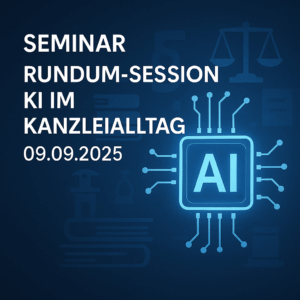Vision of contract execution: how smart contracts could shape the future of payments and legal processes
Introduction
Technology is rapidly evolving and opening doors to new opportunities in the legal field, a development that always fascinates me and leaves me drawn to innovative projects. One of these breakthrough technologies is smart contracts, which are based on robust blockchain technology. They promise to make transactions and legal processes simpler, safer, and more efficient, an advance that could signal a major shift in legal practice. In Germany, traditional legal processes such as foreclosures and depositions are well established, but could be revolutionized by the introduction of smart contracts. Writing blogposts on such visionary topics gives me great pleasure, as it not only satisfies my curiosity, but also adds value to my readers and the industry. This article aims to provide an overview of how smart contracts work and how they could change the way payments and some legal processes are handled. By exploring new technologies and sharing my findings, I hope to spark discussion and encourage others to explore the potential and opportunities that smart contracts offer.
Fundamentals of foreclosure and escrow
Enforcement is an essential legal mechanism used in Germany to force the fulfillment of claims. If one party fails to pay a debt, the other party may seek foreclosure to collect the debt. This procedure is defined by various norms and regulations in civil procedure law, in particular by the Code of Civil Procedure (ZPO). The process of foreclosure follows a set legal structure that aims to protect the rights of creditors while ensuring a fair process for debtors.
On the other hand, escrow is a practice whereby a neutral third party holds assets or documents until certain conditions are met. Escrow provides assurance to both parties that the agreed terms will be met before the assets or documents are released. Here, too, certain standards and laws regulate how filing procedures are to be conducted in order to protect the interests of all parties involved.
Both processes are essential components of the German legal system, but can be time-consuming and costly. The use of legal services, court fees, and the length of the process can drive up costs for all parties involved. Moreover, these traditional legal mechanisms can often place a burden on courts that already face a heavy caseload.
Another relevant issue in this context is the handling of non-judicial settlements. Non-judicial settlements are agreements between disputing parties to settle a legal dispute out of court. They are more cost effective and time efficient than formal court proceedings. But this often raises the problem of enforcing the agreed terms. In the event of non-compliance with the settlement by one of the parties, it may be necessary to take legal action again to enforce performance of the agreement. This could negate the entire benefit of saving time and money.
The introduction of smart contracts could provide a solution to many of the problems mentioned. By automating contract terms and ensuring compliance through blockchain technology, smart contracts could reduce the need for traditional foreclosure and escrow processes. They could also provide an efficient and cost-effective method of enforcing non-judicial settlements by setting the terms of the settlement programmatically and executing automatically once the terms are met. Thus, smart contracts could bridge the gap between technological innovation and existing legal norms, revolutionizing the way legal processes and transactions are handled in Germany and beyond.
Functionality and immutability of smart contracts
Smart contracts represent a remarkable evolution in the world of contract execution, laying the foundation for a whole new way of interaction between contracting parties. They are self-executing contracts whose conditions and logic are written directly in code. This unique feature allows contracts to be executed automatically once the specified conditions are met, without the need for an intermediary or verification entity.
The underlying technology on which smart contracts are based is the blockchain. It provides a decentralized and immutable record of all transactions. In the traditional contract system, changes in contract terms after signing could lead to conflicts and legal disputes. The immutability of smart contracts eliminates this risk because once published on the blockchain, the terms of the smart contract cannot be changed or deleted. This represents a fundamental shift in the trust dynamic between the parties by eliminating concerns about subsequent changes.
Blockchain technology also enables increased transparency and verifiability of all transactions. Every transaction recorded on the blockchain is visible to all parties involved and cannot be changed afterwards. This promotes trust between the parties and can also be useful in the event of disputes, as there is an unchanging history of all transactions and contractual interactions.
In addition, smart contracts can help standardize contract norms by providing a clear and immutable reference for contract terms. They can also help clarify legal and operational standards by automating processes and reducing ambiguity and misunderstanding.
The combination of self-execution, immutability, and transparency positions smart contracts as a potentially revolutionary technology in the legal field. They can complement or, in some cases, even replace traditional contracts, especially in scenarios where contract terms can be clearly defined and execution can be automated.
However, the implementation of smart contracts also presents challenges. Legal recognition, integration into existing legal frameworks, and training of legal and IT experts are some of the hurdles that must be overcome to realize the full potential of smart contracts. In addition, the technology itself must continue to evolve to meet scalability, data protection, and other key requirements.
Research and development in smart contracts and blockchain technology is dynamic and ongoing. Over time, smart contracts could emerge as a critical tool for a wide range of applications in the legal sector and beyond, fundamentally changing the way we understand and use contracts.
Finally, the quote “Smart contracts are neither smart nor are they contracts.” represents a critical reflection on the nature and scope of smart contracts. The term “smart” in this context refers to the ability of the code to act automatically without human intervention, while “contracts” refers to legal binding. In practice, smart contracts are more like program code than traditional contracts, and their “intelligence” is limited to the predetermined logic that is programmed by humans. The legal recognition and enforceability of smart contracts is still a contentious issue that requires deeper investigation and regulation to close the gap between technological innovation and legal acceptance.
Smart contracts in the context of payments and legal processes
Smart contracts can significantly streamline foreclosure and deposition processes and make non-judicial settlements more efficient. Their automated and self-executing features can ensure compliance with contract terms and enable automatic payments once certain conditions are met. This could reduce the need for traditional legal mechanisms, saving time and resources. For non-judicial settlements, smart contracts offer a programmatic solution to define and enforce the terms of the settlement, which could improve the efficiency of these settlements and increase their attractiveness.
The implementation of smart contracts also provides a fertile field for startups that could develop platforms and services for the creation, management and enforcement of smart contracts. This could give rise to new business models and services that complement and transform the legal industry.
However, there are significant barriers to the widespread implementation and legal recognition of smart contracts. One of the biggest challenges is integration into the existing legal framework, especially in a complex legal system like Germany’s. Legal recognition of smart contracts as binding contracts is critical to ensure their effectiveness and enforceability. In addition, the application of smart contracts requires a wide range of knowledge in both the legal and technical fields, which underscores the need for training legal and IT experts.
The technology itself must evolve to meet scalability, data protection, and other critical requirements. Standardization of contract norms and clarification of legal and operational norms are also needed to promote the use of smart contracts and fully realize their benefits.
In conclusion, smart contracts have the potential to significantly improve the practice of foreclosure and escrow, as well as the execution of non-judicial settlements. Their implementation could also prepare the ground for the creation of innovative startups. However, legal recognition and integration into the existing legal system, as well as further development of the technology, are crucial factors that need to be addressed in order to realize this potential.








